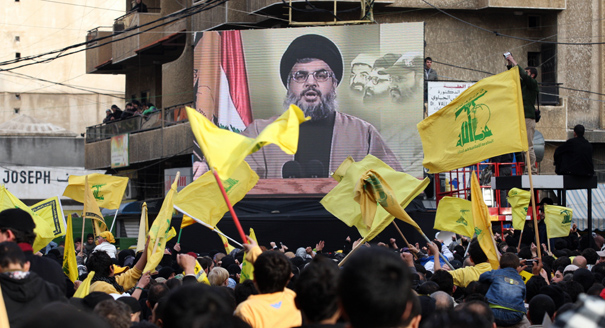Joyce Karam | Washington correspondent for Al-Hayat and the National.
The U.S. sanctions introduced definitely put Hezbollah’s financial networks in Lebanon and worldwide under a larger microscope. However, I am not entirely confident that they can extract a big price from the party or force a change in its behavior.
As we know, Hezbollah is not dependent on the U.S. market or wired transactions for its funding. Hence, while these measures will pressure companies or funders affiliated with the party inside and outside Lebanon to reconsider their support or face economic sanctions, Hezbollah will not soon go bankrupt. Iranian funding for the party and a cash flow from other sources will likely continue without being affected by these steps.
If countries in the region follow U.S. sanctions after their passage in the fall with similar measures, this will put more pressure on party funders in the Gulf or elsewhere. Largely, Hezbollah seems to have grown more confident after the recent battle in Arsal and its gains in Syria. The new status quo will increase its defiance and leverage regardless of the financial squeezes and pressures the party will face.
David Gardner | Columnist for the Financial Times, living in Beirut, and author of Last Chance: The Middle East in the Balance (2009)
New sanctions on Hezbollah and its allies are on their way through the U.S. legislative pipeline. Coming on top of the barrage of sanctions last year, which targeted not just the party but its huge welfare network and disrupted the remittance flows that keep Lebanon afloat, these could further weaken an already vulnerable Lebanese economy.
For now, though, they are unlikely to dilute Hezbollah’s power at home or prevent it from acting as a spearhead in Iran’s drive to consolidate an arc of Shi‘a power through Iraq and Syria to the Mediterranean. The party seems to have adapted to being formally cut off from Lebanon’s banking system. The new measures, moreover, are not as sweeping as some had anticipated. That could change.
There is a tendency in the Middle East to see all U.S. policy as centrally directed. That has never been less true than under President Donald Trump’s erratic administration. Yet this chaos encourages other protagonists, from Congress to the courts, to seek a piece of the pie. It is worth recalling that in the $8.9 billion fine imposed on France’s BNP Paribas bank for violating sanctions against Iran, the U.S. executive accounted for only $1 billion.
Nicholas Blanford | Beirut correspondent of the Christian Science Monitor and nonresident senior fellow in the Middle East Peace and Security Initiative at the Atlantic Council’s Brent Scowcroft Center on International Security. Author of Warriors of God: Inside Hezbollah’s Thirty-Year Struggle Against Israel (2011)
Probably not very much, at least directly. Hezbollah long ago mitigated the impact of U.S. financial measures against the party by avoiding any direct association with the Lebanese banking sector and dealing in cash wherever possible. But Hezbollah is aware and concerned by the fact that its support base could be affected by stricter U.S. sanctions legislation. Hezbollah is part of the fabric of Lebanese society, which makes it very difficult to target the party in isolation from its surroundings.
For example, Hezbollah’s vast social welfare services include hospitals, schools, clinics, social centers, and charitable institutions, all of which could potentially be threatened by tightened sanctions legislation, with consequent repercussions on employees and beneficiaries. Furthermore, these services have dealings with government entities such as the ministries of health, education, and social affairs, which theoretically could make state institutions vulnerable to U.S. sanctions.
Rigorously-enforced sanctions could lead to a freezing of bank accounts of individuals and companies that have even a passing association with Hezbollah. It could also induce a lack of confidence in the Lebanese banking sector, precipitating both capital flight from banks and a reduction in overseas remittances (which amount to more than $7 billion a year) from expatriate Lebanese. While Hezbollah’s finances may be only marginally affected by enhanced sanctions, the party’s main concern is that its core support base could suffer financial penalties. That could lead to a potential backlash against Hezbollah’s popular standing.










